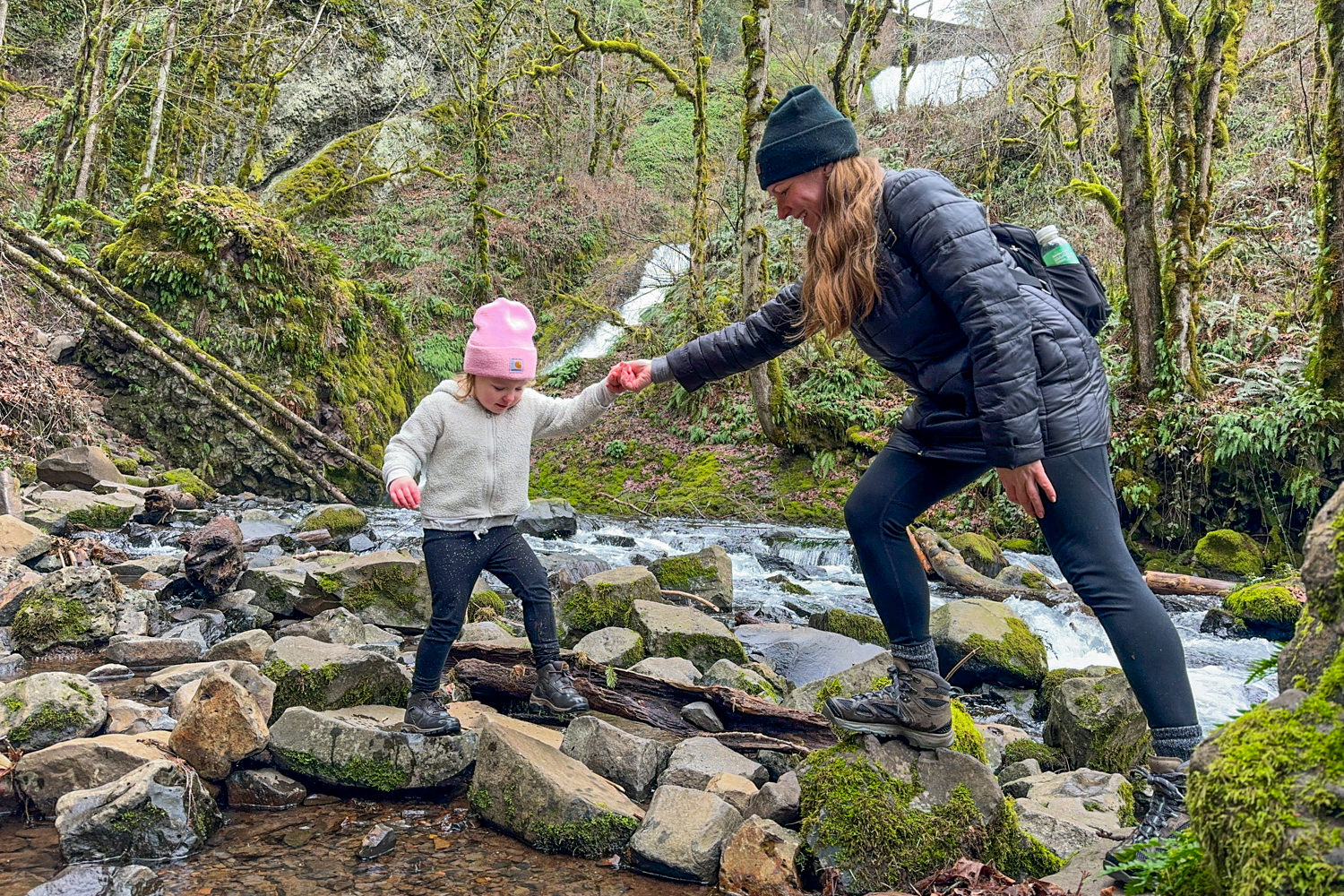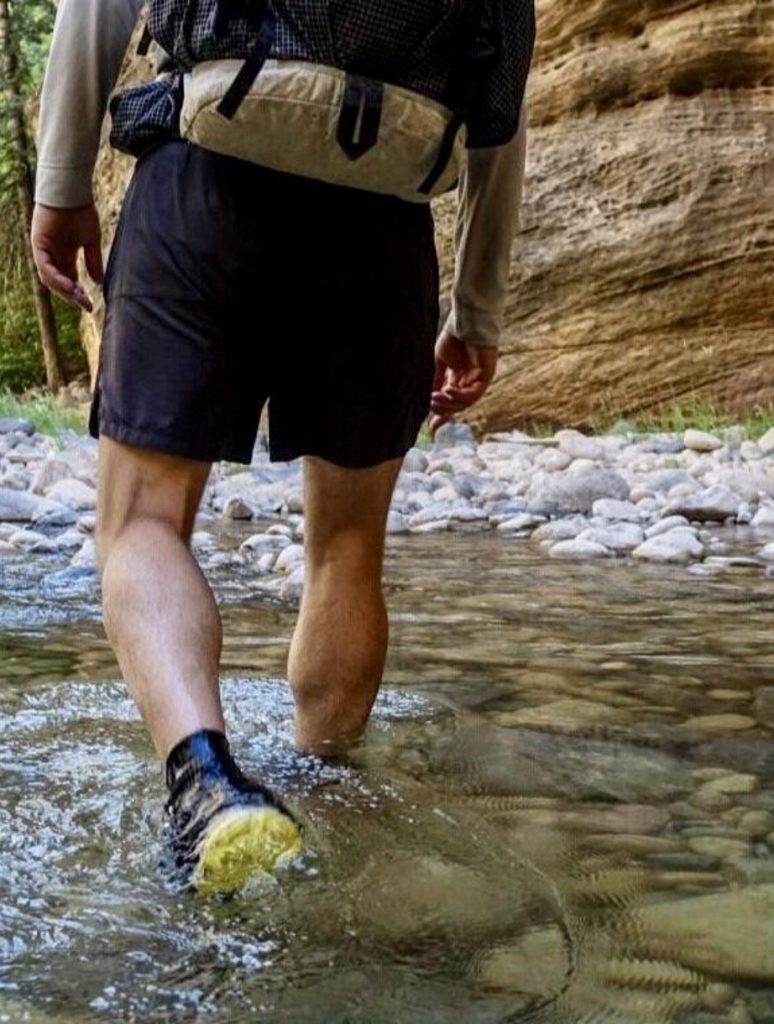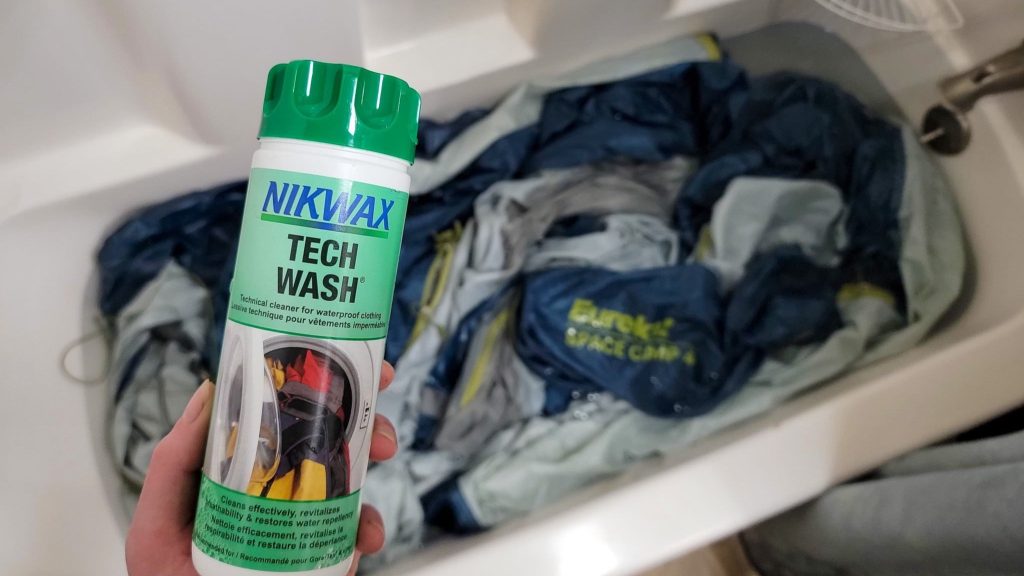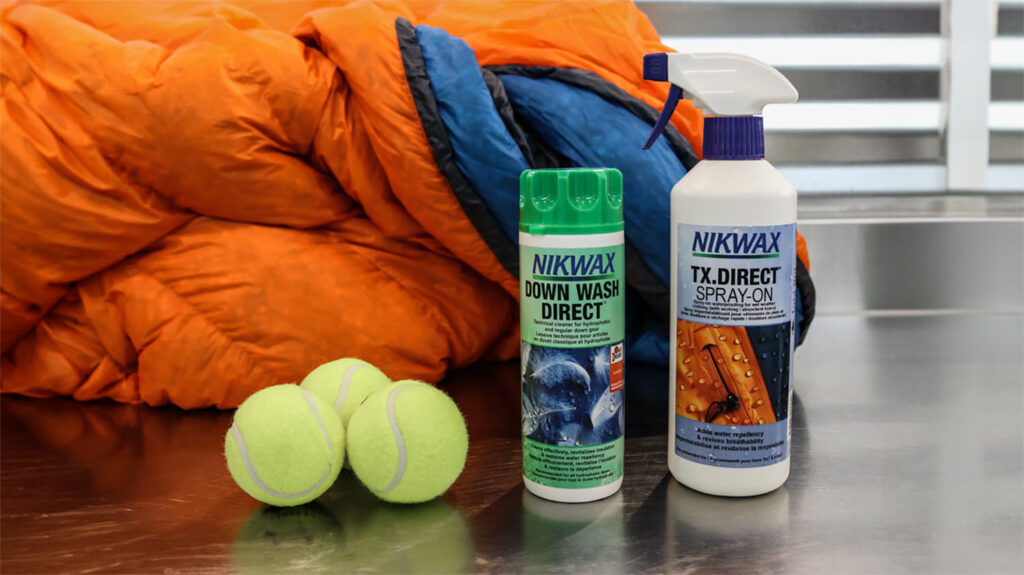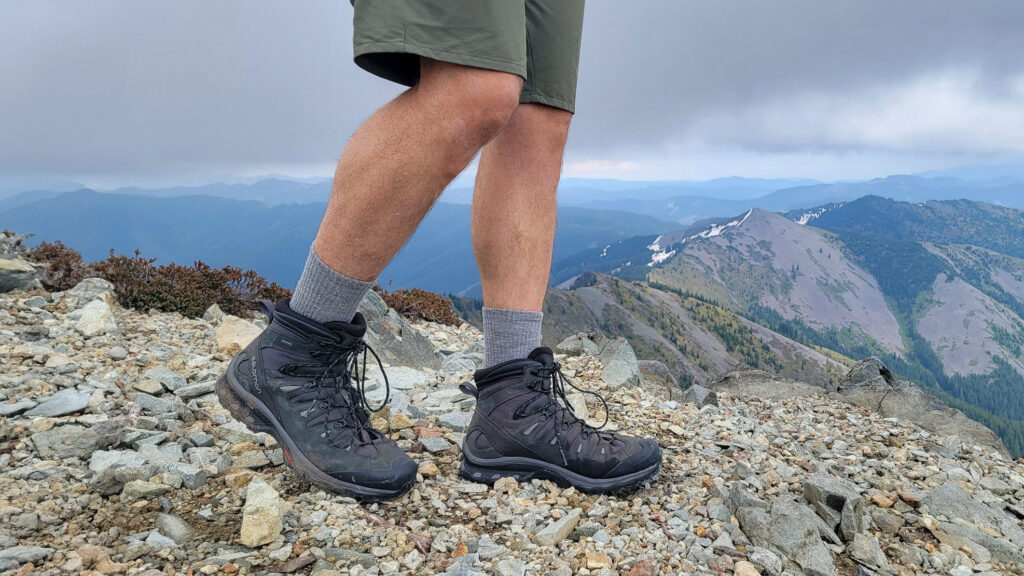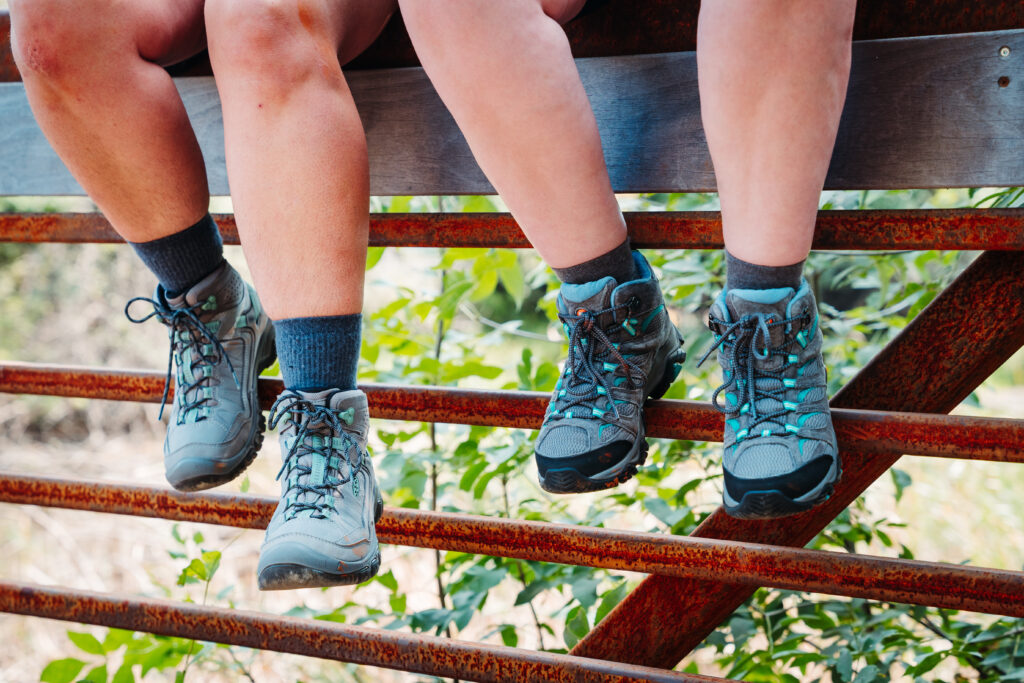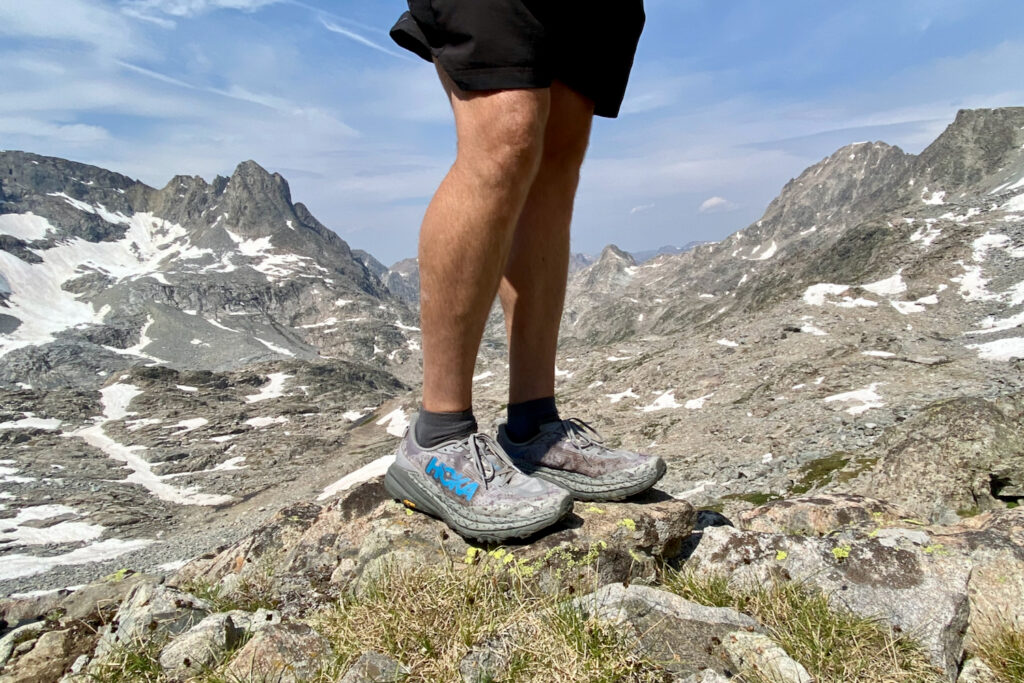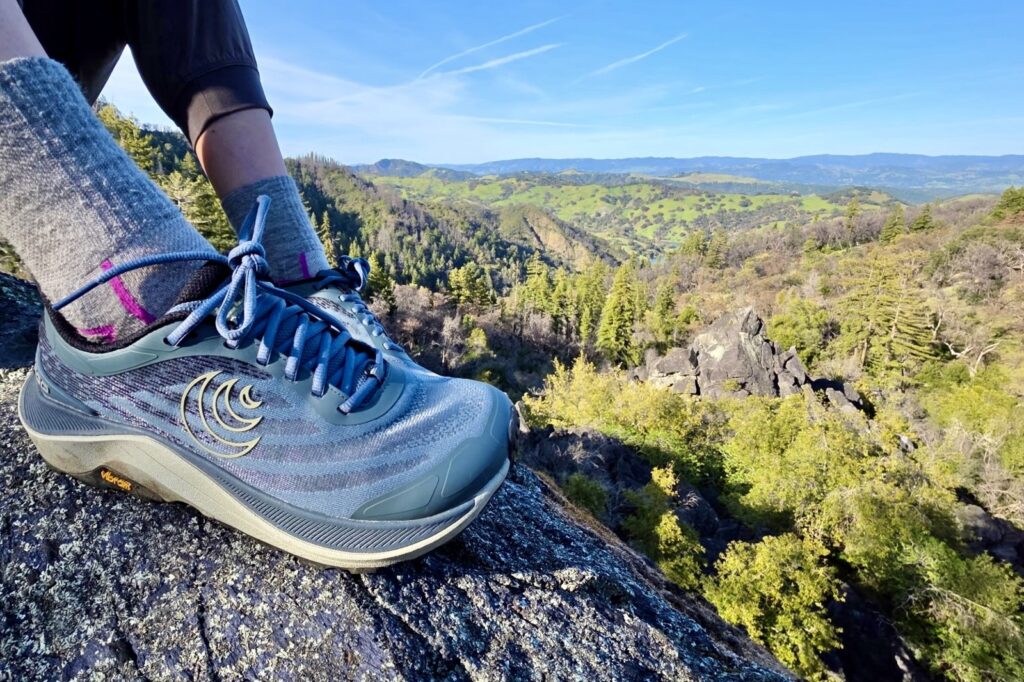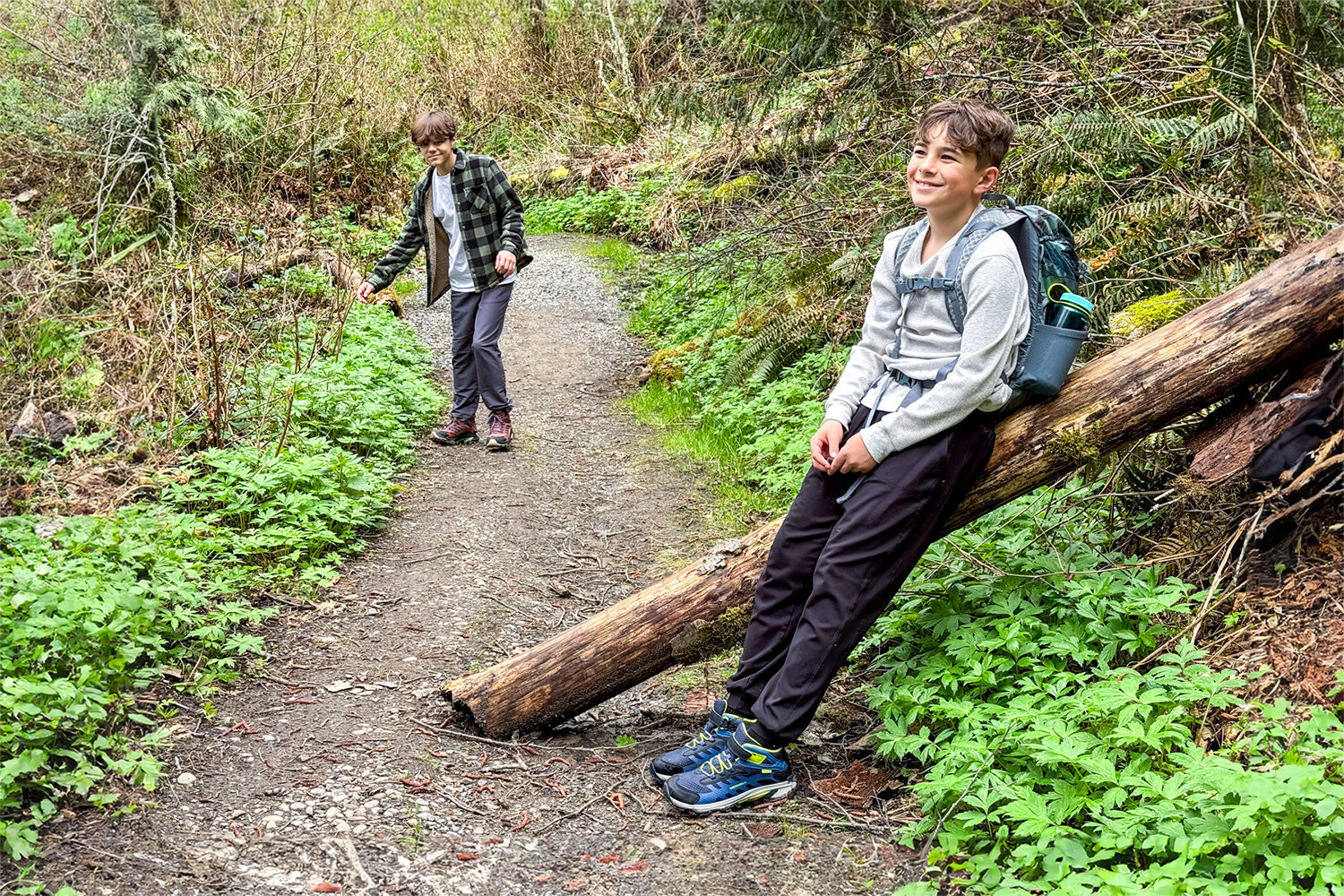
We’ve been hiking with our kiddos for years and we want to share our six tips for keeping yours safe and happy in the woods. Preparing for the weather, bringing the right gear, and packing lots of snacks and water are key. Practice setting boundaries around hiking. Fun, slow, worry-free hikes can foster a lifelong love of the outdoors – and there are few things better than making memories outside together.
1. Bring the Right Gear
Comfortable gear makes for happy hikers. As any parent knows, it’s important to choose the right shoes. Comfortable, breathable clothes that fit well, absorb and distribute sweat effectively, and are warm or cool enough for the weather will also help ensure kids have a good time. If they are carrying a backpack, be sensitive to its size. In general, kids’ packs should be no more than 15% of their body weight. For tips about what to bring on a day hike, check out our list of 10 Things You Should Bring On Every Day Hike. As parents, it’s also crucial to carry a first-aid kit in case of emergencies. For our favorites, see our guide to the Best First Aid Kits.
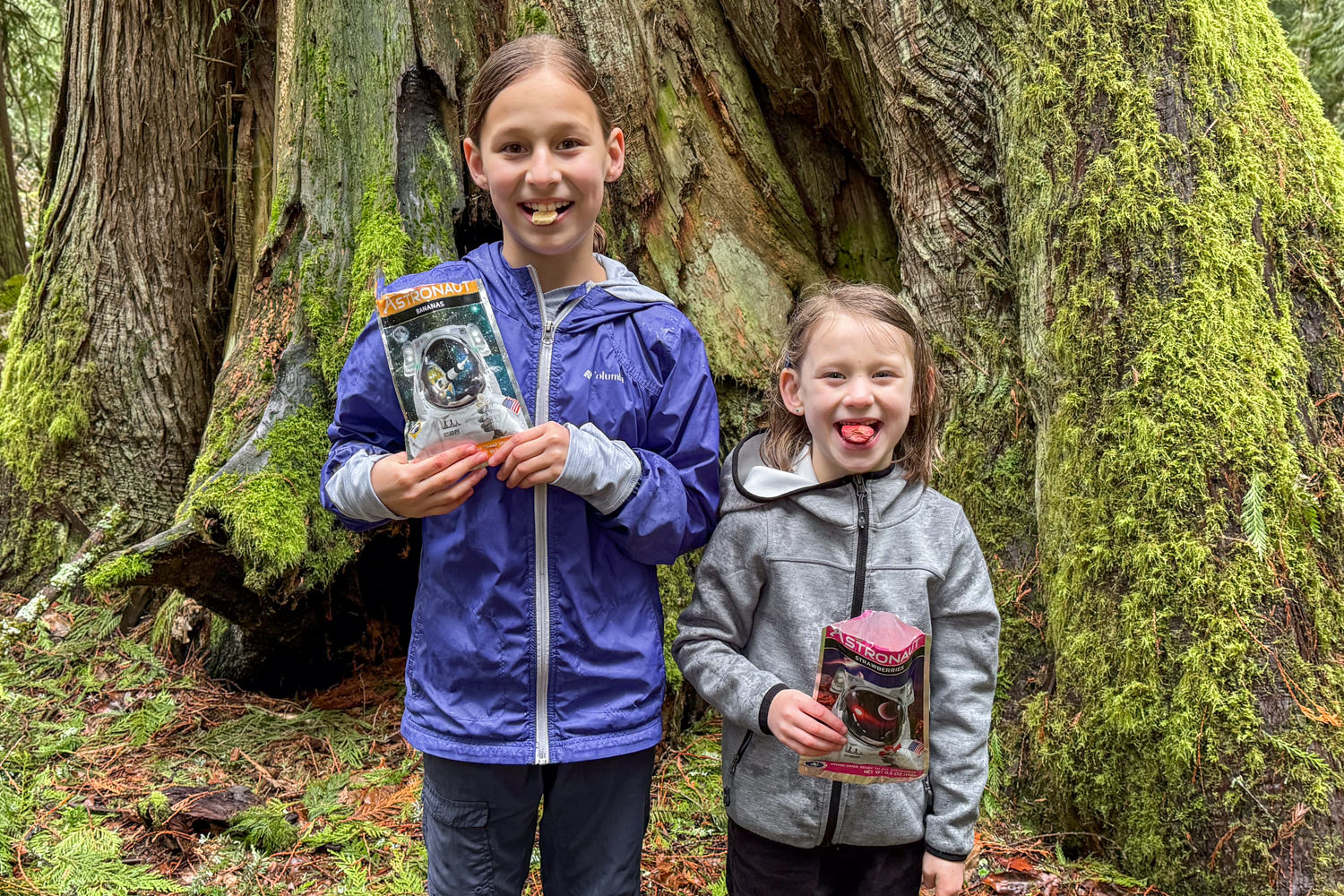
2. Have Plenty of Water & Snacks
Besides choosing comfy gear, keeping your kid hydrated and fed is the best chance for a fuss-free hike. We like high-protein, calorie-dense snacks to keep our energy up, but we endorse any food that your child is excited about. Consider snack bags of trail mix, crackers, dried fruit, or even candy like M&M’s or gummy bears. See some of our favorite suggestions for staying fueled and full-on on the trail in our CleverHiker Food Guide.
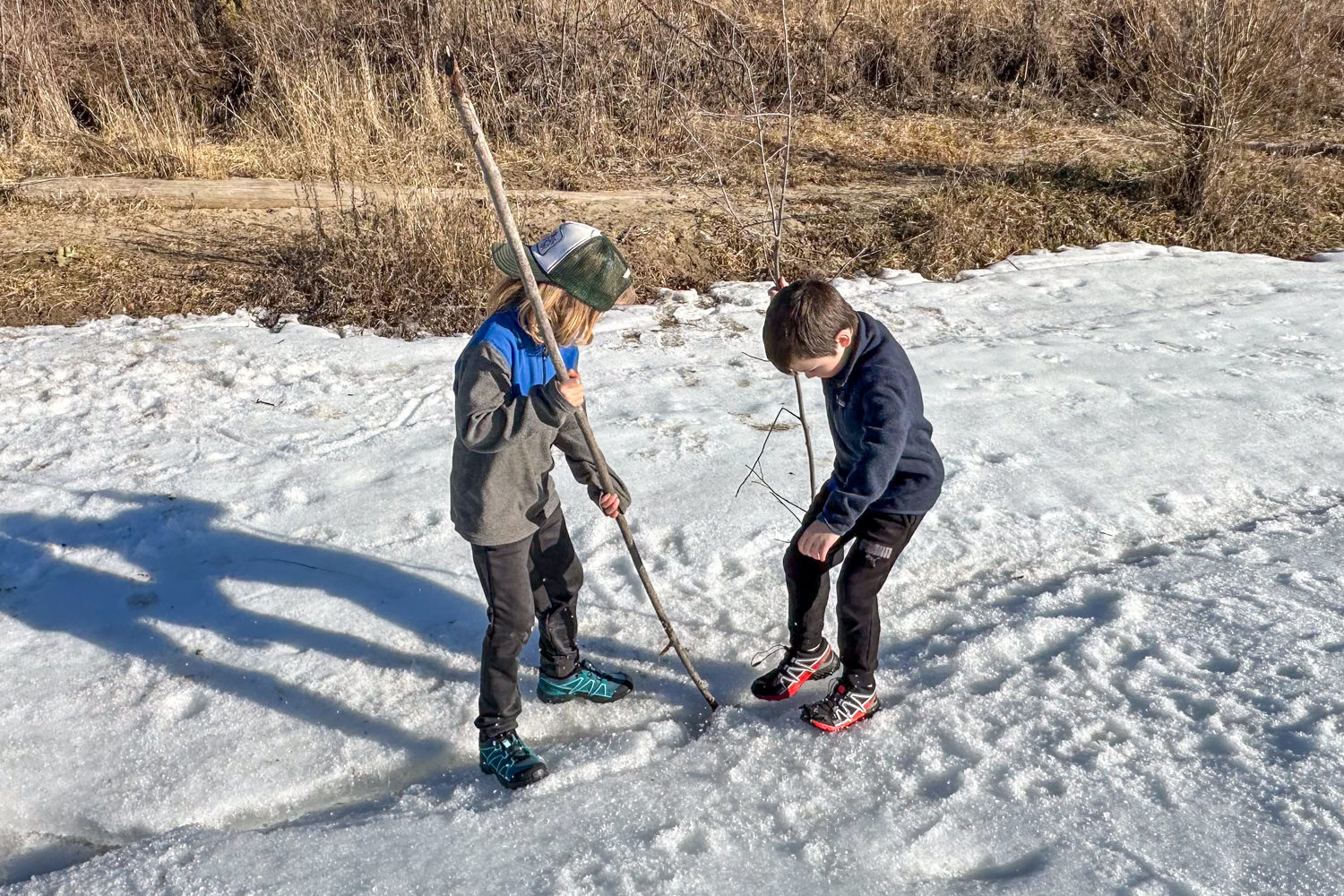
3. Balance Freedom with Boundaries
Hiking with your kids is the perfect time for setting and practicing boundaries. Hiking is effective for establishing clear rules around where and how kids can explore while also giving them the freedom to learn about their surroundings and test their bodies. Use the quality time outdoors to teach safety rules like staying on the trail, and talk about emergency plans like what to do in case someone gets injured or lost. Remember to take lots of rest breaks to keep kids energized and hydrated.
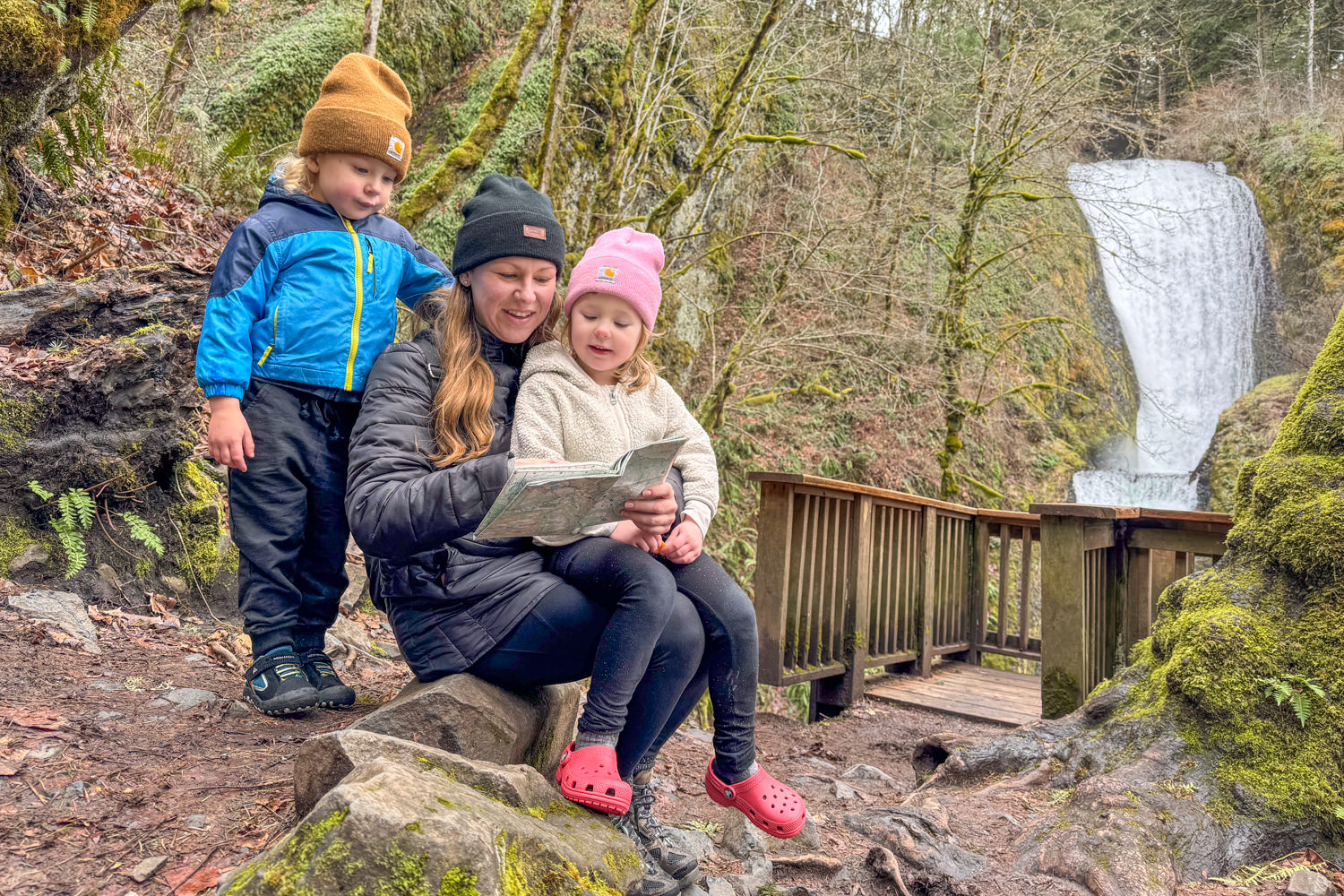
4. Take the Opportunity to Educate
Don’t just keep a watchful eye during your next adventure – explore the wilderness with your little ones! Hiking offers amazing, unique opportunities to learn about different plants and animals and observe the natural world as it is. If they are game for a hike, then it’s also a good time to share age-appropriate leave-no-trace principles.
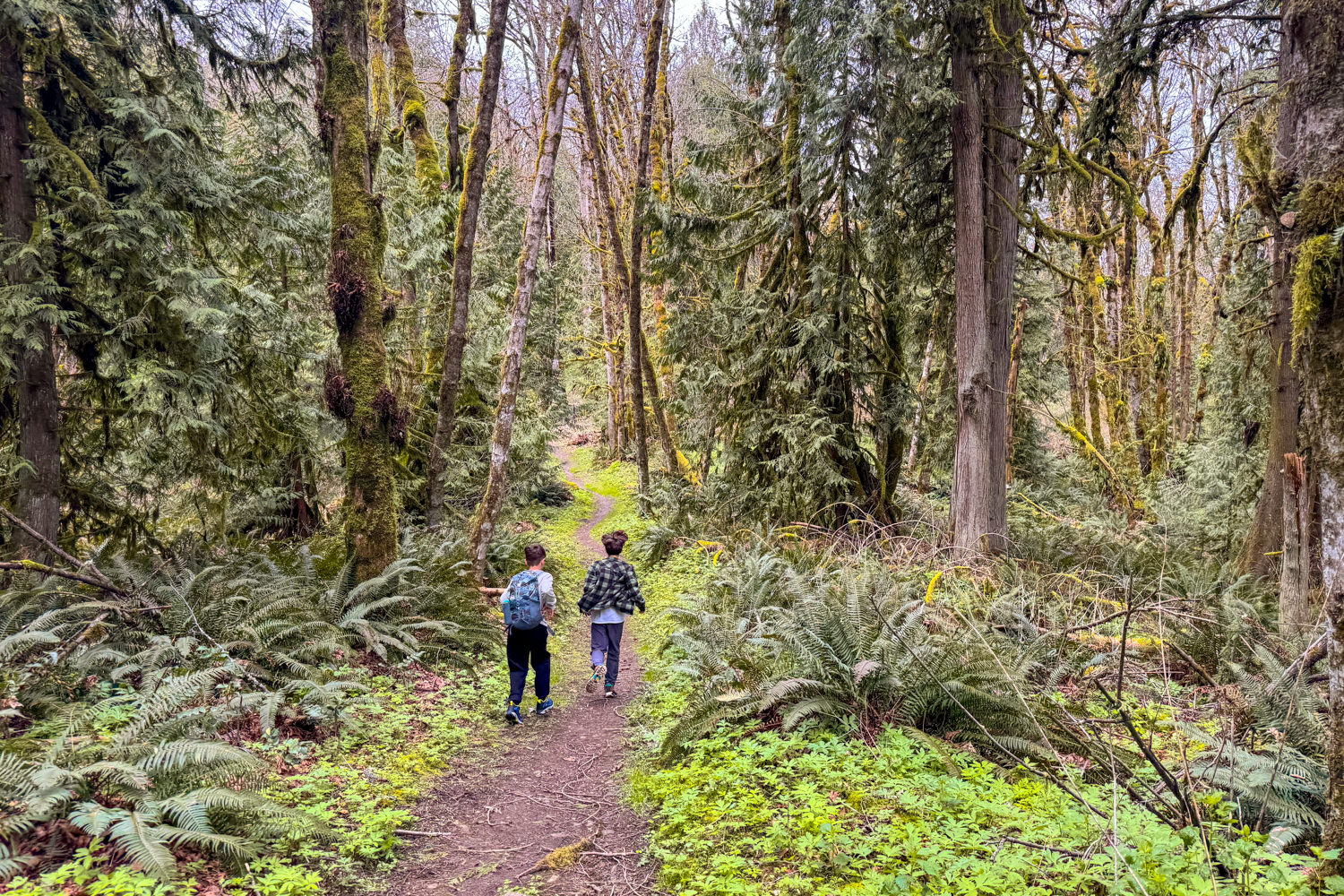
5. Choose the Right Trail
Picking the perfect trail is important to keep your child safe and having fun. We recommend signed, obvious, family-friendly trails to cater to your kid’s age and experience level. Ahead of time, be sure to research elevation changes, length, and difficulty of the trail – and be ready to turn around. The most memorable hikes with kids are often short on distance and big on dirt, digging, and poking. Reconsider routes where your group might get lost, end up on challenging terrain, or run into unexpected dangers.
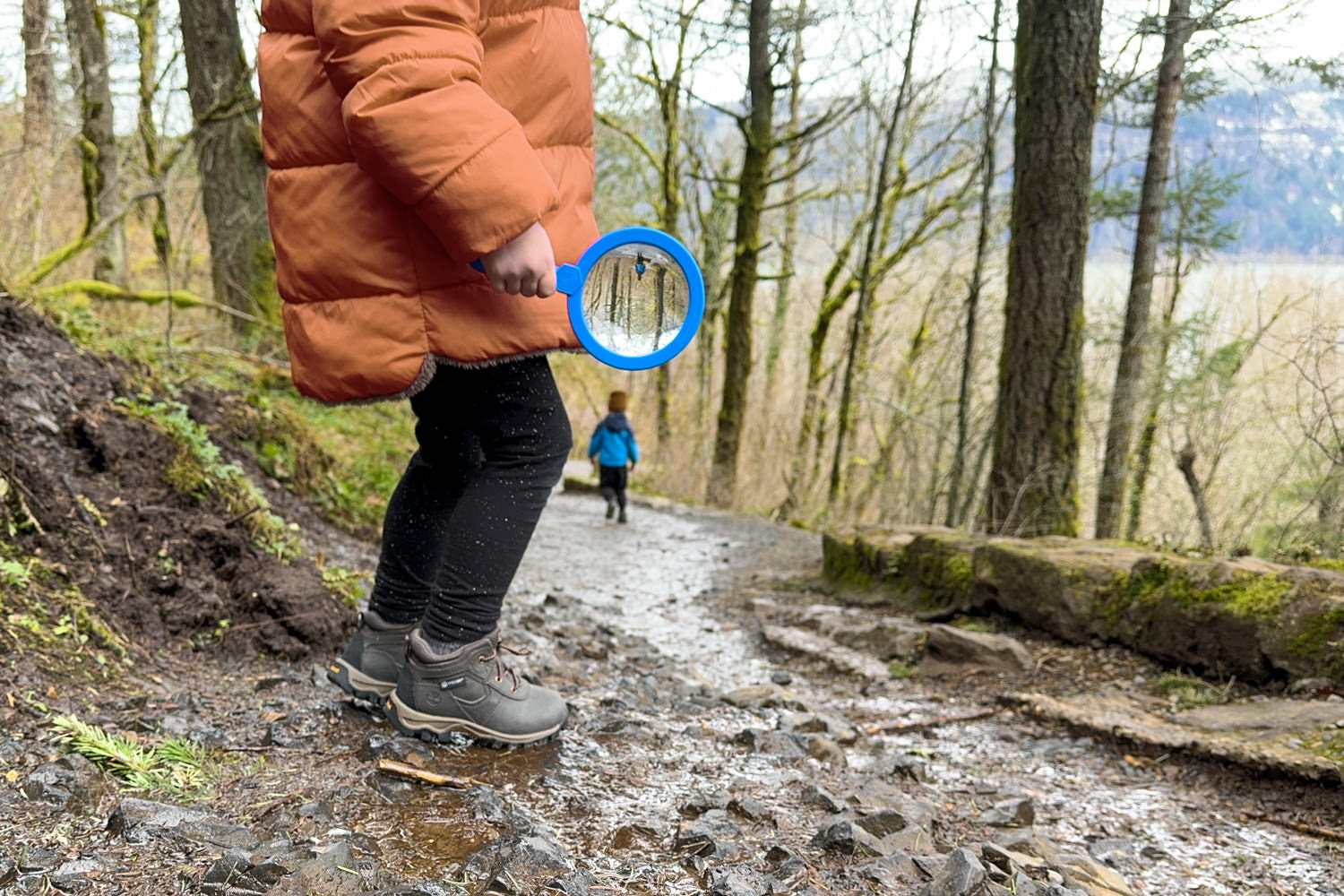
6. Know the Weather Forecast
As with any hike, always check the weather forecast before heading out in the wilderness with your kids. Knowing what to expect is the difference between a wet, cold, or dangerous hike and a pleasant, well-planned stroll in the woods. Sudden weather changes pose major safety hazards to both children and parents. Kids don’t always like wearing jackets, but always have extra layers, proper sun protection, and gear for “just-in-case” scenarios. If you’ll be in heavy rain, severe cold, or extreme heat, plan carefully for the weather, or consider changing your plans altogether.
